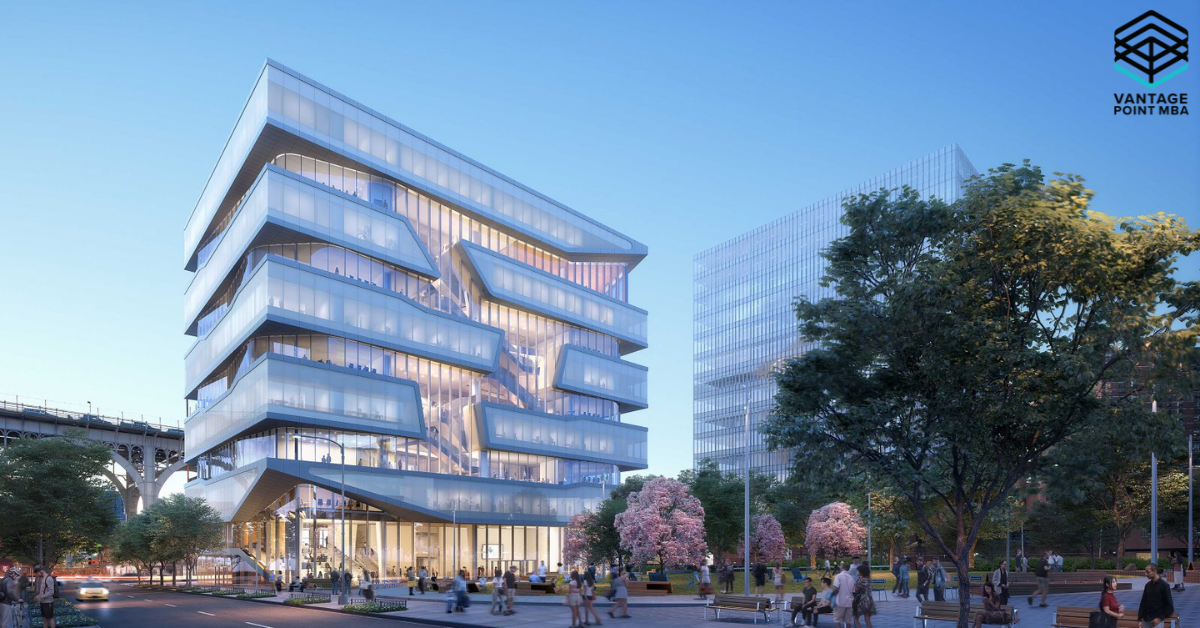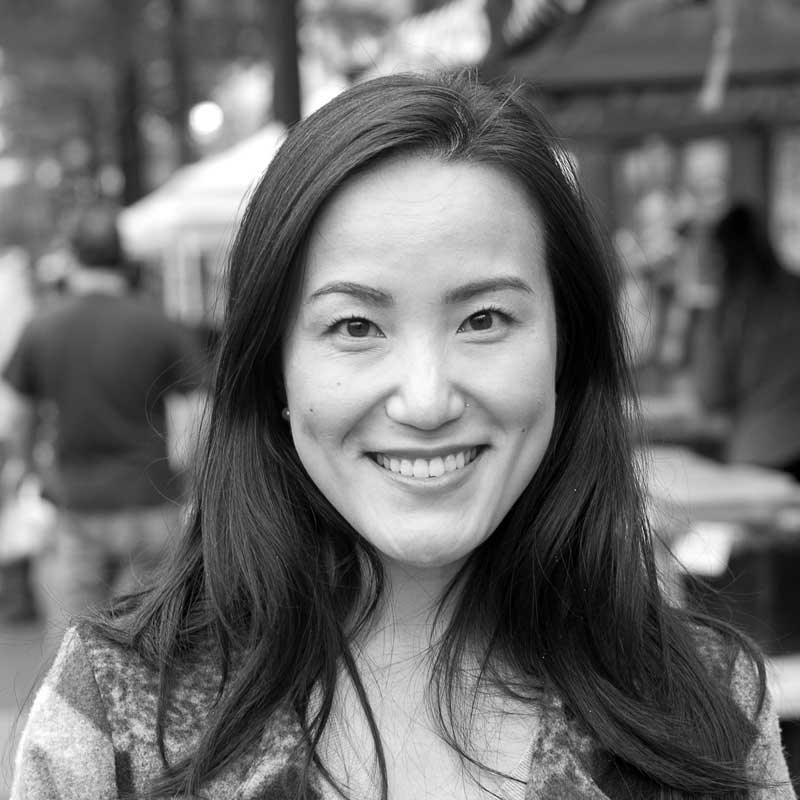Columbia MBA Essay Questions, Tips & Advice for 2025-2026

Columbia Business School has just released its MBA application essay prompts for the 2025–2026 cycle. The Columbia MBA essays remain mostly consistent with last year (with a minor change), giving applicants a clear framework to reflect on their goals, leadership experience, and vision for their time at CBS. With a mix of short answers and essays, the application gives you ample space to present a well-rounded, authentic picture of who you are. It’s also your opportunity to show what you’ll bring to the CBS community and to a top M7 program.
If you’re applying to Columbia Business School, check out our expert guidance on common essay pitfalls and how to avoid them.
Columbia MBA Essay Questions
Short Answer Question: What is your immediate post-MBA professional goal? (50 characters maximum)
Examples of possible responses:
- “Work in business development for a media company.”
- “Join a strategy consulting firm.”
- “Launch a data-management start-up.”
January-Term Short Answer Question: Why do you prefer the January-entry term? (50 characters maximum)
August-Term Short Answer Question: How do you plan to spend the summer after the first year of the MBA? If in an internship, please include target industry(ies) and/or function(s). If you plan to work on your own venture, please indicate a focus of business. (50 characters maximum)
Essay 1: Through your resume and recommendation, we have a clear sense of your professional path to date. What are your career goals over the next three to five years and what is your long-term dream job? (500 words)
Essay 2: Please share a specific example of how you made a team more collaborative, more inclusive or fostered a greater sense of community within an organization. (250 words)
Essay 3: We believe Columbia Business School is a special place with a collaborative learning environment in which students feel a sense of belonging, agency, and partnership–academically, culturally, and professionally.
How would you co-create your optimal MBA experience at CBS? Please be specific. (250 words)
Columbia MBA Essay Advice
You can learn a lot about a school by looking at the essay questions they ask. Columbia’s MBA essay questions show they want students with clear, well-researched career goals. This is why Essay 1 has a generous word count and there’s a direct short answer question. CBS also values diversity—not just in background, but also in thought. Collaboration and leadership grounded in shared values are equally important to the school’s culture. Essays 2 and 3 ask you to show how your values and goals align with what CBS offers and what unique perspective you bring. Keep these points in mind as you write your answers.
The ‘Why’ is as Important as the ‘What’ in Essay 1
If you haven’t spent much time reflecting on your career goals, Columbia’s first MBA essay question may seem daunting. And that is precisely the point. Columbia is looking to admit individuals who have given a lot of thought to their career, what they want to do and why, and how a Columbia MBA will help them achieve their goals. This does not mean that you must have complete clarity over your future, but rather you’ve taken the time to think about it and have a strong perspective.
Our founder, Melody, recently spoke with a member of the Columbia admissions committee, who reinforced that CBS wants to understand “how you’re thinking about your goals and how you plan to achieve them.”
There are three parts of this essay question to pay attention to:
1. Don’t Rehash Your Resume
The first sentence of the essay question makes it clear that the AdCom does not want you to spend a lot of time rehashing your professional experience to-date. To the extent that you do, it should only be for the purpose of providing context to your career goals.
Has your current role made you want to go deeper into the industry or function you’re already in?
Has it made you realize a gap in the market that you’d like to fill through an entrepreneurial venture?
Have your experiences made you realize you want to pivot into something else?
Successful candidates connect the dots between what they have learned from their work experiences and what they want to do in the future.
2. Note the ‘3-5 Years’ Timeframe
The question asks about your career goals over the next 3-5 years. This period would include both during your MBA and a few years following your MBA.
When stating your career goals immediately following your MBA, be specific as to the role/title and industry you want to pursue. And then expand on the answer you provided to the short-answer question. Your response should show that you’ve done research into the role and industry and that you have a realistic understanding of the path to get there.
It may be helpful to discuss the skill sets you have to-date and what you plan on building on top of that during your MBA at Columbia to make yourself competitive for reaching your career goal in the short-term.
Ideally, your goals will also be impact-oriented, showcasing not only what you hope to learn but also how you plan to impact your intended clients, community, or other stakeholders.
3. Dream Big for Your Long-Term Goals
The last part of this question asks about your long-term career goals. However, the use of the words “imagination” and “dream” indicates that the AdCom is giving you permission to think big. You don’t necessarily have be too practical or in the weeds of the “how.” They are hoping to get to know you better as a person by understanding what you value in a career.
Think about what aspects of a job would make it your dream job.
What is the impact that you want to make in the world?
What do you want your legacy to be?
While your long-term dream job can be ambitious, your motivations should still be grounded in the experiences that you’ve had. This is how the whole essay flows together.
‘Small’ Stories Can Make for a Powerful Answer to Essay 2
This question is the only one that changed from last year. For context, last year, CBS launched the J-Term application with Essay 2 addressing Columbia’s PPIL program. The prompt asked applicants to reflect on a time that they utilized one of the program’s five skills. However, after receiving feedback from international applicants who struggled to answer a question that had less relevance outside of American culture, CBS admissions added a second option for the August entry application.
What they found is that nearly all applicants chose to answer that second option. So, this year, that second option has become the sole question for Essay 2.
That said, many applicants assume they need to showcase a major initiative or formal leadership role in this essay, but that’s not the only path to a strong response. In fact, “small” stories, those that highlight everyday moments of empathy or inclusion, can be incredibly powerful. A focused, specific story often feels more personal and memorable than a broad summary of actions.
Consider moments where you helped someone feel supported, bridged a disagreement, or brought a quieter voice into the conversation. These may seem minor, but they speak volumes about your values and emotional intelligence, which are traits that foster real collaboration.
DEI Still Matters
Although universities, including Columbia, are currently moving away from using terms like “DEI”, the underlying values of diversity, equity, and inclusion remain deeply embedded in their programs and communities. Remember that diversity extends beyond race, ethnicity, gender, or sexual orientation; it also includes age, disability, socioeconomic background, beliefs, life experiences, and even working styles. As you craft your response, don’t hesitate to highlight how aspects of your identity or background shaped the way you helped a team become more inclusive or cohesive. Just be sure these elements support the story you’re telling, adding context and insight into how you made others feel seen, valued, or empowered.
Perfection Isn’t the Point
When using the STAR (Situation, Task, Action, Result) framework to answer the question, realize that the result may not be clean and satisfying. It’s okay that even your actions may have been imperfect. Being able to reflect honestly on what you observed and how you handled a situation should be the crux of your response. If you have the space, you can even consider weaving in how Columbia will further help you develop as an inclusive and collaborative leader.
Remember that ‘Fit’ is a Two-Way Street in Essay 3
Rather than asking ‘why CBS?’ or ‘how will you contribute to the CBS community?’, this question goes a step further. How you would co-create your CBS experience. CBS is looking to admit individuals who want to be active and learn from their peers. They want solutions-oriented contributors in the CBS community. Not just benefiting from what’s already available but making their own personal mark on the program. The fact that CBS students, Mariah Celestine ’20 and Camira Livers-Powell ’20, designed the Phillips Pathway for Inclusive Leadership (PPIL) program is a great example of how students can co-create elements of CBS’ academics, culture, and professional development.
Research First, Write Second
The first step to answering this question is to do your research on what CBS currently offers. Do research on their academics and faculty, extracurriculars, career support, culture, and its location in New York City. You can do this through speaking to student ambassadors, alumni, attending small group conversations with members of the AdCom, and even visiting a class.
Once you have a good understanding of what CBS has to offer, you can start brainstorming ways your background, experience, and strengths can elevate your essay. How can it add to the three different aspects of the CBS experience – academics, culture, and professional development?
Through your research, did you discover a gap that you are uniquely capable of helping to fill?
Is there a particular experience that you think you can enhance and take to a new level?
Is there a faculty member that you’d like to collaborate with?
The question asks you to be specific, so avoid cliches and pandering to the admissions committee. Your response should not only show how intimately you know CBS, but paint a clear picture of where you will invest your time and energy. How you will contribute, and what will your legacy will be?
Looking for personalized, one-on-one support on your Columbia MBA essays or other applications? Reach out to request an initial consultation with our team of MBA admissions experts, including Columbia Business School alumni and former admissions directors.




